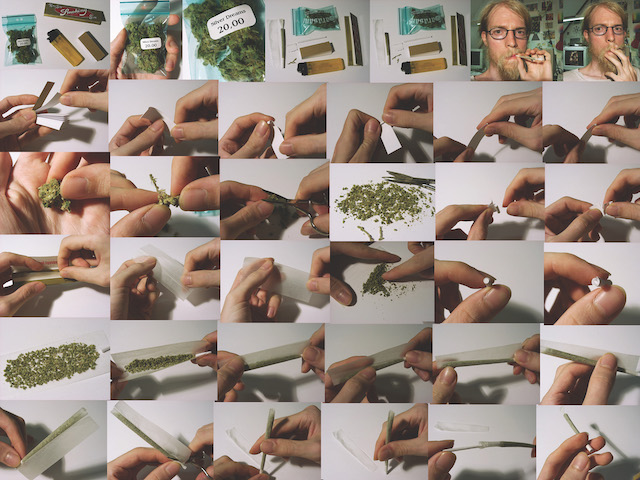Quentin Tarantino has gotten away with too much.
The director glorifies violence against women and people of color, makes an industry out of movies centered on violence toward minority groups and gets called a “genius” for it. Throughout his career, Tarantino has consistently been backed by known sexual predator Harvey Weinstein. Tarantino has no consideration for those behind the camera, and frankly, no one has held him responsible.
Kill Bill
The Kill Bill script called for Uma Thurman to be spit on by co-star Michael Madsen, but Quentin Tarantino was the one who did it. He didn’t trust anyone else to spit right.
“I’m the director, I can kind of art direct this spit,” Tarantino told Deadline. “I know where I want it to land. I’m right next to the camera. So, boom! I do it.”
The director has come under fire since Thurman told The New York Times that he mistreated her on set. Tarantino responded to those allegations in the Deadline interview—much of which deals with Thurman’s near-fatal car crash on the set of Kill Bill—but he also admitted to The Washington Post that he choked Diane Kruger years later while filming Inglourious Basterds.
Thurman also recalled how Tarantino forced her to drive a car she knew to be unsafe while shooting a scene for Kill Bill.
“Quentin came in my trailer and didn’t like to hear no, like any director,” Thurman said. “He was furious because I’d cost them a lot of time. But I was scared…the seat wasn’t screwed down properly. It was a sand road and it was not a straight road.”
Thurman came back from the hospital “in a neck brace with [her] knees damaged and a large massive egg on [her] head and a concussion.” She added that she and Tarantino then had a fight, during which she accused him of trying to kill her.
Once Upon a Time in Hollywood
Tarantino’s most recent film, Once Upon a Time in Hollywood, is set in 1969 Los Angeles during the summer of the Manson murders. Roman Polanski is a central character. The director, charged with raping a minor in the ‘70s, was married to Sharon Tate at the time of her murder.
In 2003, Jezebel pointed out Tarantino defended Polanski’s assault while speaking on Howard Stern’s radio show. Stern asked the director why Hollywood continued to support “this mad man, this director who raped a 13-year-old,” to which Tarantino replied: “It was statutory rape…he had sex with a minor. That’s not rape. To me, when you use the word rape, you’re talking about violent, throwing them down—it’s like one of the most violent crimes in the world.”
After being reminded that the drugged child could not consent, he added, “Look, she was down with this.”
In 2018, 15 years after his original statement, Tarantino publicly apologized to Polanski’s victim, Samantha Geimer, in a statement shared with IndieWire.
“Ms. Geimer WAS raped by Roman Polanski,” Tarantino said in the statement. “When Howard brought up Polanski, I incorrectly played devil’s advocate in the debate for the sake of being provocative. I didn’t take Ms. Geimer’s feelings into consideration and for that I am truly sorry.”
“Devil’s advocate” seems to be his constant state of being. The director lives to be controversial through his films and in interviews.
Kareem Abdul-Jabbar recently wrote a column in The Hollywood Reporter regarding Tarantino’s depiction of Bruce Lee in his most recent film Once Upon a Time in Hollywood.
“Of course, Tarantino has the artistic right to portray Bruce any way he wants,” Abdul-Jabbar wrote. “But to do so in such a sloppy and somewhat racist way is a failure both as an artist and as a human being…That’s what makes the Bruce Lee scenes so disappointing, not so much on a factual basis, but as a lapse of cultural awareness.”
Grindhouse
In an interview promoting 2007’s Grindhouse, Fergie recalled being bitten by the director during one rehearsal. She said, “He came to the set [to] run lines with me. In one scene, Quentin got really into the character and bit me. My manager has it on his camera. I’m not going to sue him or anything, but I wanted documentation.”
Rose McGowan, who also starred in Grindhouse, wrote in her new memoir Brave that, “The first time I met Tarantino, and for years after, every time he’d see me, he said, ‘Rose! I have your movie Jawbreaker on laserdisc! I can’t tell you how many times I used the shot where you’re painting your toes!’” She continued, “That means Tarantino paid extra money to jerk off to my young feet and told me about it loudly, over and over, for years, in front of numerous people.”
Additionally, according to The Telegraph, “McGowan writes that for all the praise Tarantino receives for depicting strong female characters in his films, he also ‘beats the s— out of them for his enjoyment.’”
Tarantino’s previous films have also garnered significant criticism for their issues other than his violent treatment toward women. These criticisms include usage of racial slurs such as the “n” word.
Whether as a director using actresses like a puppet, intentional choice to be culturally insensitive or abusing the implicit trust of the creative relationship to harass women, these actions inevitably come down to desires to possess and control. It’s a conversation about power and one that needs to encompass how we’ve helped build up the image of the unimpeachable, godlike male director.
In light of everything, what is most apparent is that Tarantino is obsessed with only what he thinks and what he sees. He is so driven by his ideas that he is willing to compromise any and all moral boundaries. Some people are fond of his films, some despise him and others are fine with separating his problematic and harmful behavior from his films.
Unfortunately, this isn’t a case of separating the art from the artist. His behavior and words are the makers of his art. And there should be no designated space for male directors who create supposedly strong women on-camera and demean them from behind it.






